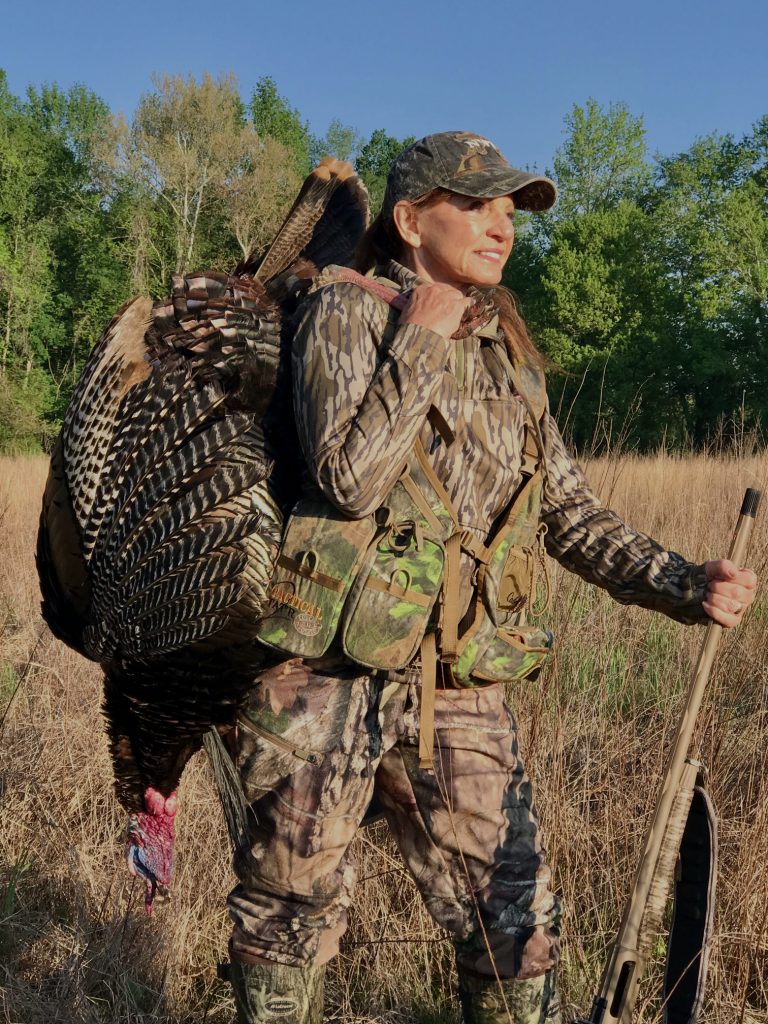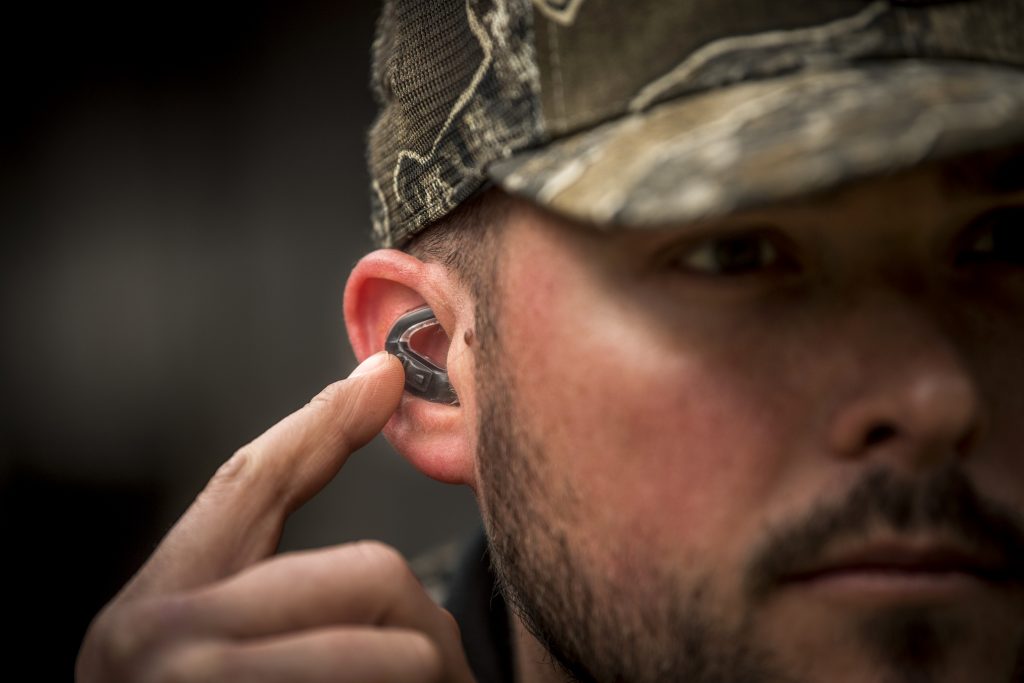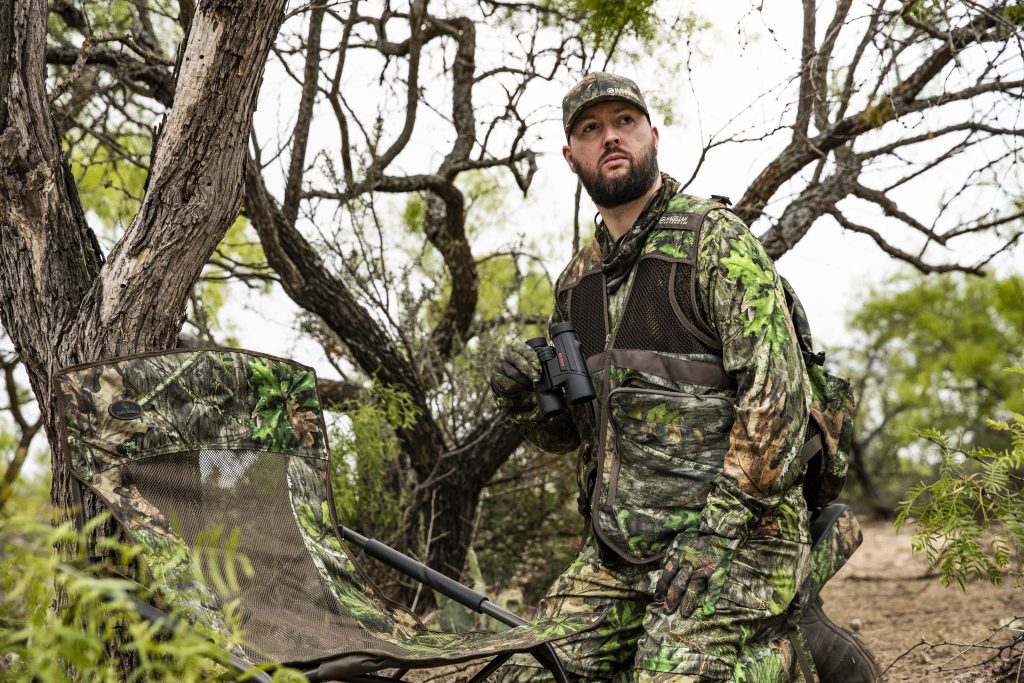Senior Solutions
The truth about turkey hunting is, turkey hunters have to hunt, whether they’re 27 or 72.

But, how we tackle the task, as seniors, changes on a level we couldn’t have understood decades ago when running and gunning and chasing toms all over the landscape was our modus operandi.
At 69, my body has slowed down and suffers aches and pains. My hearing and eyesight are declining. My 12-gauge suddenly kicks a little harder. And, running up boulder-encrusted mountains just isn’t happening. But, my desire to hunt the bird I love is at an all-time high. So, how do I adjust?
I turned to several friends, to see how they’re coping with older bodies, mature attitudes, and desires to continue filling tags.
Brad Harris, a renowned game call innovator; Brenda Valentine, the First Lady of Hunting; Ronnie “Cuz” Strickland of Mossy Oak and the host of the Fistful of Dirt podcast; and champion turkey callers and legendary hunters Terry Rohm, product manager with The Grind Outdoors, and Ray Eye, an author and producer of “Eye on the Outdoors” radio, show all chimed in.

Honest, self-assessment is important, they say. Understanding challenges and limitations, and addressing them, is the first key to success. Luckily, adaptive equipment like walking sticks, hearing aids, shooting sticks, chairs, blinds, decoys and ATVs enhance performance, safety and comfort. They’re a big part of the senior game.
“For years I listened to older hunters identify their most frustrating challenges, failing hearing and eyesight,” Rohm explains. “Now, I experience both and had to look for equipment that fit my needs.”
Rohm and Strickland both use Tetra hearing pods to ramp up the volume and allow them to better position birds, which is job number one.
“Hearing loss is devastating to a turkey hunter,” Strickland admits. “So, I’m a huge fan of Tetra. They’ve absolutely kept me in the game. Can I hear as well as my grandkids? No, but I hear birds I can’t otherwise. I don’t hunt without them.”
Rohm also staunchly stands by his decision to start using a scope. His eyesight got to the point where the fiber-optic bead on his shotgun flared so much it covered up a turkey at 40 yards. And fogging glasses weren’t the answer.
“I fought getting a scope for years, but after missing a few birds, I caved,” Rohm says. “Scoping my shotgun was the best decision I’ve ever made. Don’t let others talk you out of considering a scope. Chances are the naysayers don’t have a clue what you are experiencing.”
Valentine further extols the advantages of dropping from a 12- to 20-gauge shotgun.
“I changed to a 20-gauge following shoulder surgery a few years ago,” Valentine says. “I’ve enjoyed it so much, I’ve never felt the urge to go back to the 12-gauge. The biggest advantage is the mass weight of the smaller gun. It’s much less tiring to pack around and hold steady, and efficiently does the job.”
Harris also said eliminating weight has been beneficial, physically and mentally. He decided to go back to his grandfather’s hunting style. That included heading out with a box call, a handful of shells, and a mouth call for backup. That’s it. No cushion, no seat, no vest, nothing. The simplicity and reduced gear load make for increased comfort and enjoyment.
“I use more blind setups, with easy access by cart or ATV,” Eye added. “When in the blind, I use a shooting stick and cushions or a nice chair – things my younger self would never have believed I’d use.”
Strickland also carries a low-to-the-ground turkey chair with a backrest. He believes he can sit longer and more still than ever. A deadly advantage.
“I’ve also always carried a walking stick,” he says. “It used to be my snake stick. Now I use it more for crossing ditches or navigating steep hills.”
Rohm suggests another great tool for seniors is a cell phone. He uses his for safety reasons but also for maneuvering or surveying the terrain.
“We all hear concerns from family about heading into the wilderness alone,” Rohm admits. “I understand the concern, but I just have to go. So, I rely on my cell phone and use apps like onX Hunt to see what’s over the ridge and determine how to move. I also carry a small battery pack to charge my phone should I need it.”
Beyond adaptive equipment, changes in attitudes toward the hunt are evident.
“Older age has brought me more personal pleasure in the hunt,” Harris admits. “I’m still after him and going to fill my tag. I’m just not in a big hurry. I don’t have to prove anything to anyone but myself. It’s just me, the good Lord, and his creations. It can’t get any better. But that doesn’t mean I don’t have a plan of action to ensure success.”
Harris makes this style of hunting, proven old-school tactics, a competition between the bird and himself. Because he’s no longer pressed for time or beholden to folks he’s guiding, he scouts year-round, patterns the birds, and learns from them. Then he hones in on one or two birds. If he spends a morning set up on his target without success, there’s no stress. He simply asks himself, “What did the bird do today that I can use on him tomorrow?”
All the masters agree with Harris and their strategies align. They scout and pinpoint turkeys, to use known patterns to outsmart them.
“I rely heavily on roosting gobblers, knowing exactly what tree they’re in, their approach to the tree, where they fly down, and how they move on the ground,” Eye explains. “Then I find easy access to get as close as I can with a vehicle. It saves time and eliminates a lot of physical wear and tear.”
For Strickland, these years are also all about a different level of focus. He, too, is far more patient these days. He still hunts a lot and loves to locate a gobbling bird, but he’s also more likely to stay put than make several moves to get closer.

“I used to be able to crawl and slip better,” Strickland said. “Not so much now. I used to be laser-focused on whatever tactic would get me or my hunter into gun range. Now I’m more interested in taking it all in and teaching others why I think we should do this or that. I’m more tuned in to the weather, sunrise, the smells, and the people I’m with. I also cherish time more, time at camp, meals, campfires, and all other facets of the hunt.”
Getting older is a blessing, not a curse. Consider this, if you live to 80 or 90, how many turkey seasons are left on your calendar? Don’t let age or some aches or pains steal those precious days. Assess your abilities, address challenges with adaptive equipment, lighten up, and use your grandfather’s tactics to enjoy your passion.